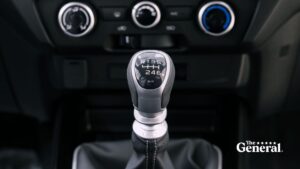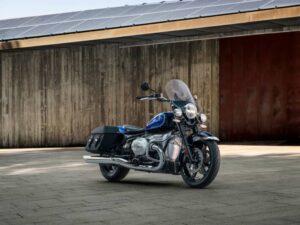5 thoughts about the 2025 Volvo EX30

Well this is a little awkward. When we drove the 2025 Volvo EX30 at the Midwest Automotive Meida Association (MAMA) Spring Rally, it was destined to arrive this year at Volvo’s new entry-level electric car. Then the U.S. government slapped huge tariffs on Chinese-built vehicles. The EX30 is currently built in Chengdu, so Volvo decided to push the on-sale date back to next year when production can begin in Ghent, Belgium, likely making the American-market EX30 a 2026 model. So, the question here isn’t should you buy, but rather, will it be worth the wait?
We think so. It’s a bit small, and cost-cutting has resulted in some ergonomic qualms, but the EX30 looks and drives like a premium small crossover that should carry a less-than-premium price tag.


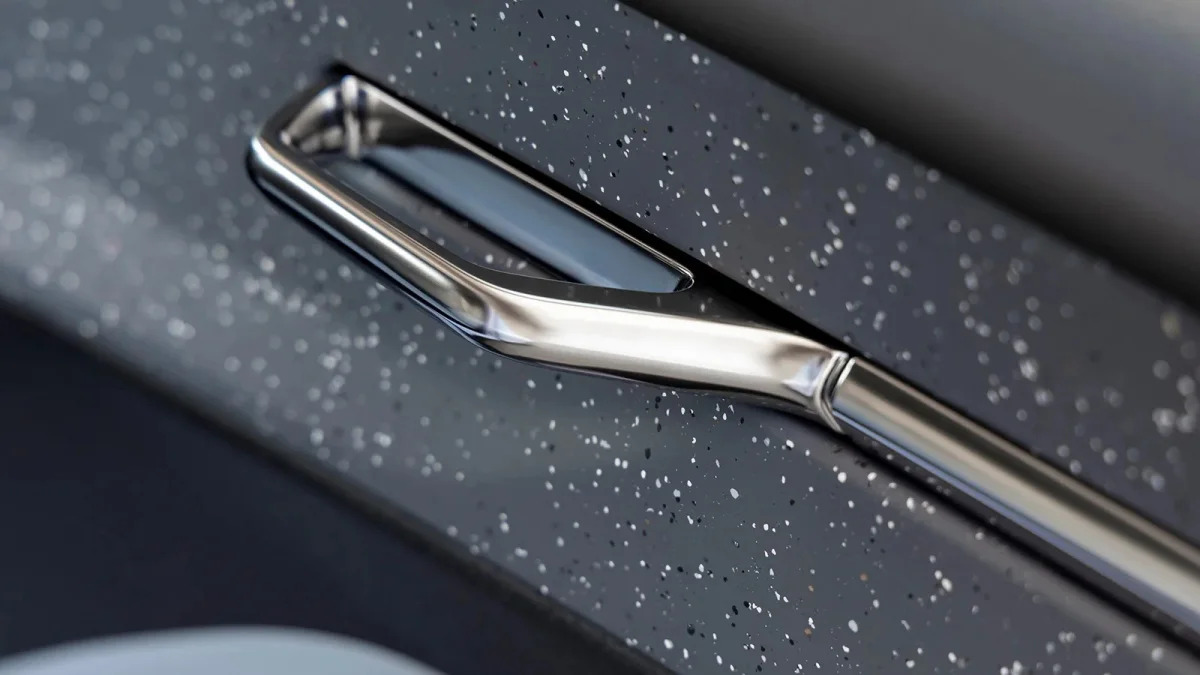
Make sure to look closely at the details
Volvo really hit it out of the park with the EX30’s design. It does minimalism almost entirely right. At first glance, it’s simple at every turn; a basic box that doesn’t even have a grille. Look closer, though, and you start noticing the interesting and even exciting details. The debossed Volvo insignia up front; the panel gap that curves in the exact same way as the wheel wells; all the linework in the head and taillights. And that’s just the start. The inside follows the same philosophy. Although it looks a bit basic at first glance, what with the open dash and sole center screen, you eventually notice the actual metal door handles that are extensions of the door trim and the various fascinating materials. That includes the speckled recycled plastic in my test vehicle or the woven fabric style that Road Test Editor Zac Palmer experienced in Sweden. There are little strakes here and there to add some visual interest, and the translucent trim in the vents are another great touch. It all makes the EX30 feel more fun, but also more premium, than its anticipated low price would suggest.
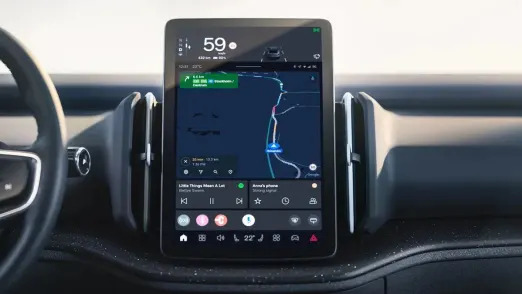
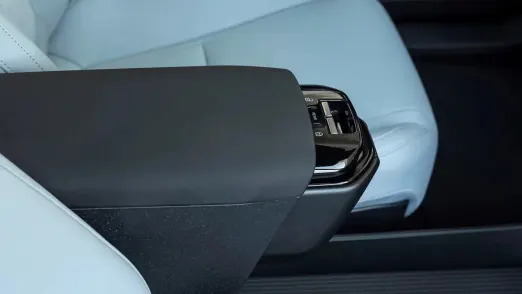
Volvo seems to have cheaped out on controls
What is frustrating, though, is that Volvo seems to have followed the Tesla, and to a lesser extent VW, model of lowering costs. That center screen handles everything. And yes, that includes the instrumentation. Now, it is something that you can get used to, but then there a lot of less-than-ideal things in life you can get used to. Acclimation does not equal good. Having your speed and other critical info directly in front of you is still superior, be it a head-up display or just a small, supplemental display like even VW provides. Of course, going without those keeps things cheaper, both because the parts are literally not present and because you don’t have to swap things around for left- and right-drive markets. Beyond that, the screen also houses all controls for climate and stereo controls – even the glovebox can only be opened via the touchscreen. That’s annoying, even if the touchscreen itself is otherwise well-executed.
The steering wheel buttons are also touch-sensitive, and whether it’s a VW or Mercedes, we’ve never been won over by these controls. At least there’s a stalk for the wipers and turn signals.
Another area where the cost-cutting shows up is in the window switches. They are located on the center console up front, which isn’t unheard of – old BMWs had them as does today’s Hyundai Ioniq 6 and Ford Bronco – but like the VW ID.4, you need to toggle between the front and rear windows to select which set of windows you want to operate. The combination of unusual placement and dropping two switches seems like nickel-and-diming gone too far.


The EX30 is also pretty tight (space wise)
Despite its low, hunkered down appearance, the EX30 actually feels very airy inside. The low dash goes a long way to that, plus the high seating position. Unfortunately, passenger space is limited. Front occupants get reasonable leg and headroom, but the way the center stack juts out to support the screen really intrudes on knee room. I was bumping it fairly frequently.
The rear seats, meanwhile, are seriously cramped. The only way I could fit behind my 5-foot-11 self was by splaying my knees apart, one wedged between the front seat and B-pillar, and the other toward the center console. Volvo doesn’t give a dimension for space behind the rear seats, but the cargo area does at least look pretty usable even with the seats up. So skip the EX30 if you’re looking for an actual family car. This one’s more for single people and couples that only need to use the rear seats occasionally.
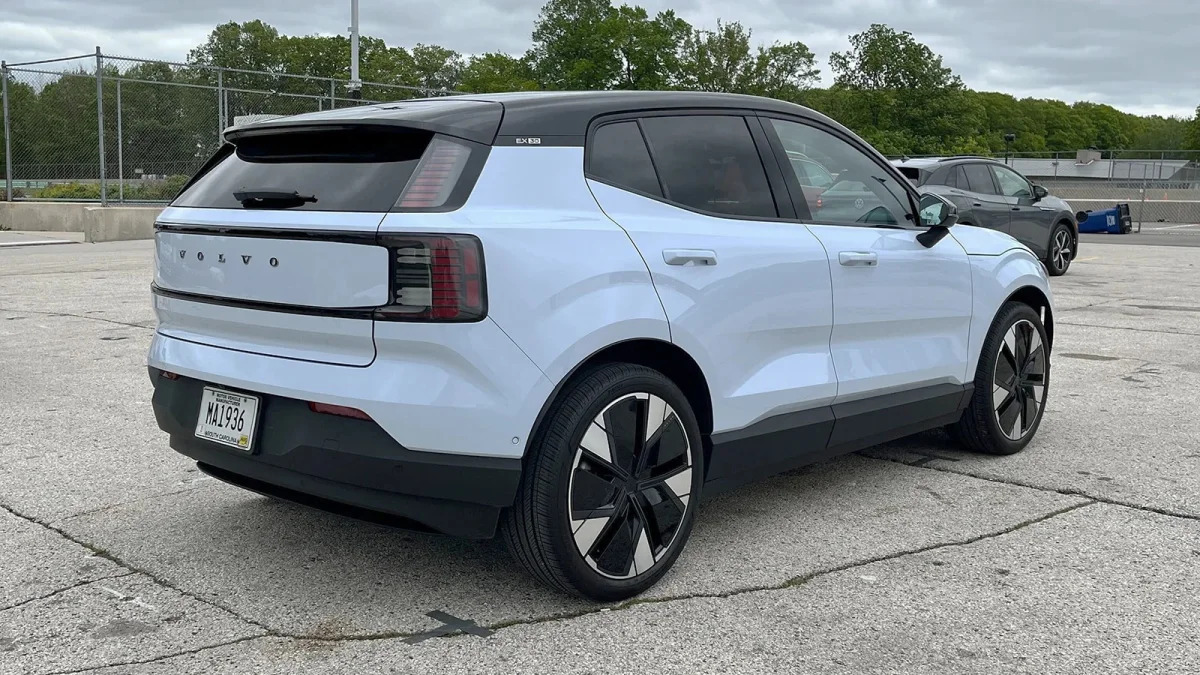
It’s quite good to drive
And I’m not just talking about it being a comfortable and quiet commuter, which it certainly can be. The EX30 is actually fun to drive. The one I got to sample was just the single-motor, rear-drive example. It makes 268 horsepower and 253 pound-feet of torque, and according to Volvo, gets the 4,100-pound hatchback-crossover-SUV-thing to 60 in 5.1 seconds. It feels just as impressively gutsy as that number implies, making it more than likely you’ll be perfectly happy to skip upgrading to the dual-motor. Of course, it’s understandable to be sorely tempted by the prospect of 422 hp simply by adding that extra motor. Even more so when Volvo only expects the extra motor to drop range by 10 miles.
Beyond acceleration, the single-motor model has a light and frisky nose, again much like the ID.4, making it nippy on tight backroads and in town. The steering is overly light and numb, though, which is disappointing when it feels this sprightly. And as we touched on, the ride is compliant and body roll restrained. A good all-‘rounder with a bent toward fun.


It’s a great value, no matter what
Volvo announced that the EX30 would launch at $36,145. That would make it one of the most affordable EVs on the U.S. market, before tax credits. That pricing was also announced with a much earlier launch date, though, and it’s possible prices will change when the EX30 starts rolling off the assembly line in Belgium where higher labor costs could result in an unavoidable increase beyond the DOA Chinese-built model. Yet, even if Volvo does end up increasing the price by a few thousand dollars, it’s still going to be a great deal. Yes, there are roomier options, like the VW ID.4, but the Volvo has a level of style and fun that will still make it a solid choice, even if it doesn’t stay as cheap as planned. And if the pricing holds, well, it’s just that much better of a deal.

